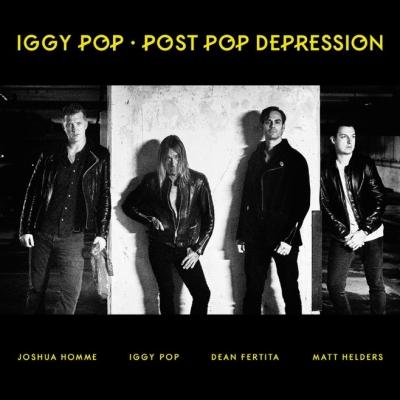2016 was a huge year for new music. Mainstream headliners like Red Hot Chili Peppers, Wilco, Blink 182, Green Day and Metallica returned for another gasp. Years-in-hype releases from Radiohead, Kanye West, Frank Ocean and Drake finally came forward. Neil Young put out two albums while Iggy Pop, The Rolling Stones, David Bowie and Leonard Cohen added to their mountainous discographies. Here are the year’s best releases:
5. Post Pop Depression by Iggy Pop
Released: March 18
Iggy Pop ages like the big oak tree that everyone pissed on in college. He soaks it up and moves forward. For Post Pop Depression, his seventeenth album,he teamed up with Josh Homme (Queens of the Stone Age, Eagles of Death Metal, Them Crooked Vultures), Dan Fertita (QOFSTA, The Dead Weather) and Matt Helders (The Arctic Monkeys). The collaboration makes perfect sense. Homme preserves the scuzz of Pop’s early days with the Stooges, but adds to it a tight-lipped air of cool. The guitars are thick like hamburger meat running alongside Pop’s chiseled scowl and the rhythm section provides a steady anchor.
While listening to “Gardenia” the screws in your neck loosen. The whole song rides on a rollicking bass line that gets the body moving like an inflatable air dancer. The chorus is an act of hypnosis. “All I wanna do is tell Gardenia what to do tonight,” Pop sings in an up and down cascade with Homme’s high-pitched vocals shadowing in the background. “American Valhalla,” sounds like background music from a lost episode of The Addams Family. “I shot my gun / I used my knife / This hasn’t been an easy life,” Pop sings.
When the cavernous maw of Iggy Pop unhinges the grumble of decades past unfurls out. With every word uttered one can visualize the deep creases of his face moving in rhythm. His Adam’s apple vibrates back and forth with each syllable. “Vulture” starts with a wooden guitar lick that sounds like a throwaway demo. But, then Pop’s voice drops into the song like sewer sludge and you’re suddenly put on alert. “Fat black vulture white head hung low / Chewing dead meat by the side of the road / His evil breath smells just like death,” he warns dryly. Post Pop Depression ends with “Paraguay” a lacerating beat down with Pop calling bullshit on our world of constant unending information and the phonies that willingly prop it up. The snarling hero of our destructive tendencies still has enough saliva to spit back into the world.

4. Anti by Rihanna
Released: January 28
Ri Ri, you make my heart ache. Anti was the most unhealthy addiction of the year. I got fat off of this. The downward cadence on “Needed Me” alone — “but baby you-ou-ou-ou-ou needed me” — makes Anti hard to put away. She gets cold with an ex-lover over a simple beat and an expanding wah-wah. When Rihanna sing, it’s in a downward spiral. “Didn’t they tell you that I was a savage? / fuck your white horse and your carriage.” Somewhere an ex is crying in his beer in a dark bar. Every other song could’ve been radio signals from the ocean and this would still be on the list somewhere. BUT, add in “Work,” “Consideration,” “Kiss It Better,” “Desperado,” “Woo,” “Yeah, I Said It”–come on, Lord please.
On “Consideration,” Rihanna gives the assist to SZA. Their voices move around each other in an uneven orbit. SZA bellowing beautifully bent notes; Rihanna soaring in an upward swing. The big single, “Work,” though, I barely know what she’s singing, gets catchier as time goes on. It’s one of her best singles. She sings against a coarse electronic tremble that never lets on “Woo.” Then, when you think it can’t any more vicious, Rihanna screams, “I don’t mean to really luh you / I don’t mean to really care about you no more.” Anti is a near classic from Rihanna. From song-to-song it dips and crashes through different styles, some all her own, some borrowed. Her powerful voice continues to lurk its way towards the outer extensions of R&B.
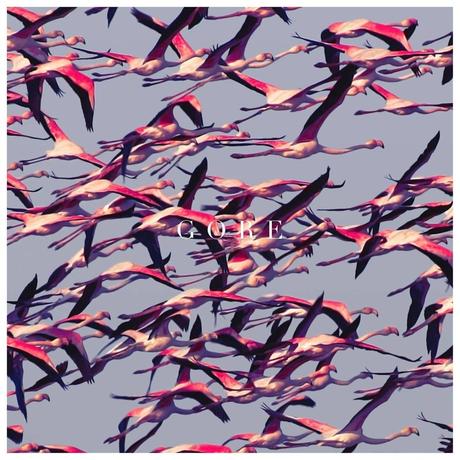
3. Gore by Deftones
Released: April 8
Deftones continue to deliver, expanding their sound in subtle and intricate ways. They remain rooted in the punk metal headrush of their debut Adrenaline, but with each album since the sound has grown heavier and more melodic in equal parts. Gore, their eighth,furthers the formula into peak Deftones territory.
Song structure is rarely straightforward with many little fine twists and turns. If you headbang to this without knowing the song, you’ll fast get off beat. “Prayers/Triangles,” opens the album with a slow, meandering guitar the drums break and the chorus slashes through. Throw the bottle at the wall when “Doomed User” comes on. Deftones to the core. “Geometric Headdress” erupts like a tank through a wall. Chino Moreno’s scream scorches like a propane tank left to explode. Then ten seconds in it flips to an offbeat rumble with a wily guitar pushing the listener out of rhythm. Midway through “Hearts/Wires” settles over the album like the final rays of sunlight. A few simple guitar pluckings crawl over each other while Moreno sings of a memory lost. “The slit in the sky where you left / is all I see,” he aches. The slow build is hypnotizing.
Deftones just continue to breathe new life into an old sound. Gore, the third album since Vega took over for the late Chi Ching on bass, follows Koi No Yokan and Diamond Eyes on a continuing upscale of creativity that doesn’t seem to be slipping any time soon.
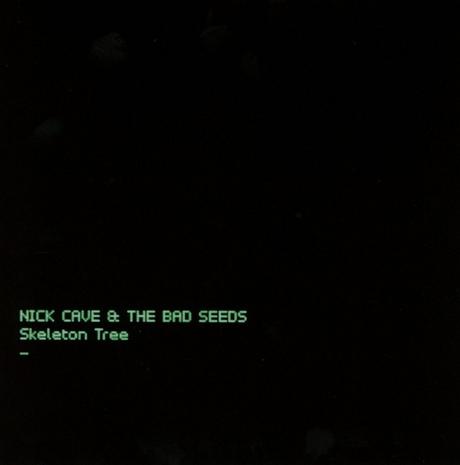
2. Skeleton Tree by Nick Cave & the Bad Seeds
Released: September 9
You’re sitting at the desk drinking vodka from a mug in an empty room. With his voice, he’s calling you. With his voice, Nick Cave is calling you. “Jesus Alone” opens the sixteenth album from Nick Cave & the Bad Seeds with a rhino-breathing vibration that pulsates from end to end. Skeleton Tree is a cloudy-eyed meandering through the forests of Cave’s mind. It captures him in a whirlpool of emotion as he attempts to create art in the aftermath of the tragic death of his 15-year old son, Arthur.
In July of 2015 Arthur fell 60 feet off the Ovingdean Gap cliffs overlooking the English Channel in Brighton. Reportedly, he had taken LSD with friends and separated after experiencing a bad trip. The event is deeply imprinted in Cave’s trembling baritone, but hidden in the code of his indirect lyrics. You feel it rather than simply hearing about it. The songs move with the rhythm of the chilling wind. Sparse piano notes wash away in the reverb of dark wandering tones. It sounds like unimaginable hurt. “Rings of Saturn” reads as a powerful ode to his wife’s motherly strength in the face of family tragedy. “Anthrocene” sounds like it could be a remix from Liars or Thom Yorke.
“I used to think that when you died you kind of wandered the world,” Cave sings on “Girl In Amber.” “Well, I don’t think that any more the phone it rings no more.” We are particle size when seen from a distance. Insignificant, scant, a blip. We live and we die and on the world turns. Cave knows this. It’s the very principle lurking behind each lyric and on Skeleton Tree he deals with the haunt like a master poet.

1. Blackstar by David Bowie
Released: January 8
David Bowie was in the top tier of rock and roll superstars, a god on earth, living breathing cultural history. The fact that his surprising death on January 8th surreptitiously worked as promotion for his 25th album, Blackstar, makes it all the more surreal. Was he really beamed to earth at a young age with his rocketing rise to super-stardom already planned out? The album is extravagant, ghostly, teetering on the outskirts of what is considered to be a traditional rock and roll album. It swivels and sinks into the poorly lit backroom of the musical mansion Bowie built over his fifty-plus-year-career.
Blackstar is a seven-song voyage, a trek through the panicked headspace of someone too aware of their mortality. It shifts in moods and tempos, wandering, but never too far. The title track is a ten-minute ride alongside Bowie as he passes through the layers of Heaven. The song wears many faces, turning inside out and evolving with the minutes. Blackstar picks up with “‘Tis A Pity She Was A Whore.” A heavyset drum and bass union churns through the song as it progresses into a perpetual Coleman swirl, horns gone akimbo. Bowie hits the high notes with a twisted sadness, a hidden anarchy while singing the title line. You can see his chiseled grin slowly rise with each word.
“Lazarus” is when the listener begins to really ache. The song saunters in with a clean, melancholic guitar scale and steady drums. But, then these soft devious horns slither in slightly offbeat. When Bowie enters he sings, “Look up here / I’m in heaven,” and your heart skips a beat. In his slow drift outward he’s catching the wind currents like the bluebird without misgiving. Blackstar is a lasting statement to not only David Bowie’s artistry, but to how he lived his life through that artistry. He worked hard through the end of his days to give us a product he’d be remembered by, a final soundtrack to the epilogue of a life lived in constant creation.
Best of the rest (R-L):
Ape in Pink Marble by Devendra Banhart / A Seat at the Table by Solange
Sonoran Depravation by GATECREEPER / Strangers by Marissa Nadler
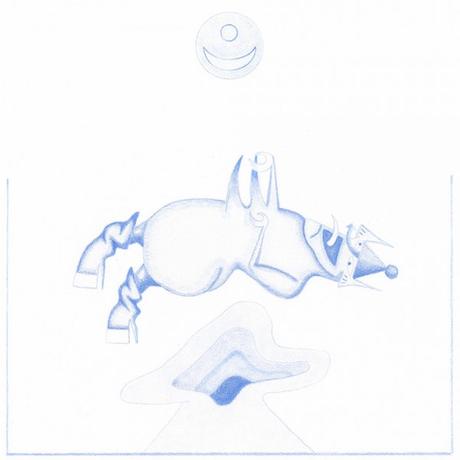

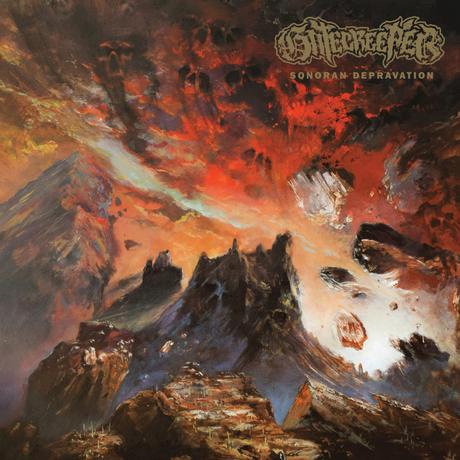
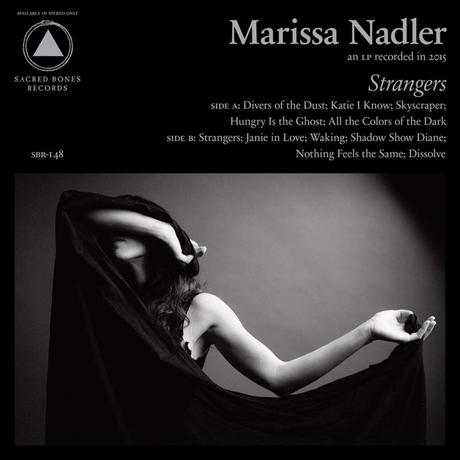
Independent Music Promotions’ (www.independentmusicpromotions.com) revolutionary music PR campaigns are the most effective in the industry. Submit your music to us today.
